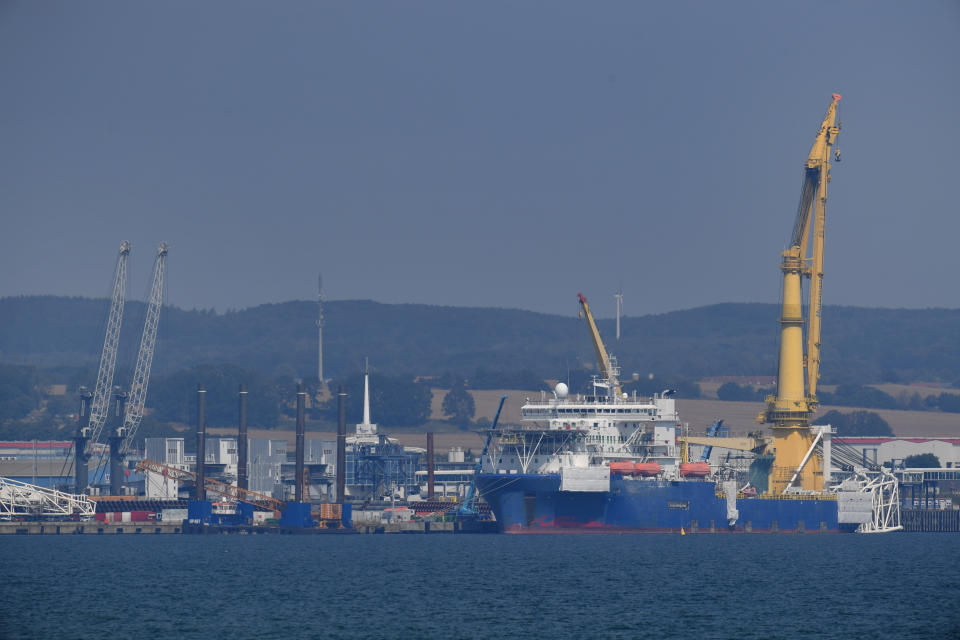Fresh US threats to German port over Russian gas pipeline spark anger in Berlin

Relations between Berlin and Washington soured further this week over the latest US threats against a German port involved in the nearly-finished Nord Stream 2 pipeline bringing Russian gas to Germany.
Republican senators Ted Cruz, Tom Cotton, and Ron Johnson had sent a threatening letter last week to Fährhafen Sassnitz, the company that operates the port of Mukran on the island of Rügen in the Baltic Sea.
The senators accused the port company of “knowingly providing significant goods, services, and support" for Russian and German pipeline-construction vessels near the German coast, and ordered it to cease its activities supporting the pipeline, threatening it with "crushing legal and economic sanctions.”
German foreign minister Heiko Maas told reporters on Monday (10 August) that he had expressed his “displeasure” about the letter on a phone call to US secretary of state Mike Pompeo.
Chancellor Angela Merkel’s spokesman Steffen Seibert told reporters in Berlin yesterday that Germany “clearly rejected” extraterritorial sanctions.
German minister of state Niels Annen last week described the letter as “completely outrageous.” He told broadcaster ZDF that “threatening a close friend and ally with sanctions, and using that kind of language, will not work.”
The letter to the port operator said that the Nord Stream 2 pipeline was a “grave threat to European energy security and American national security."
Their words echo Donald Trump’s repeated attacks on Merkel that allowing the pipeline will make Germany too dependent on Russia for its energy. Trump is also keen to sell more American liquefied natural gas to Germany and Europe.
Pompeo also warned in July that Washington would punish companies and investors the natural gas pipeline with sanctions under a revision to the US’s 2017 CAATSA (Countering America’s Adversaries through Sanctions) law.
"It’s a clear warning to companies – aiding and abetting Russia’s malign influence projects will not be tolerated,” Pompeo said. “Get out now or risk the consequences.”
Only about 160km (99 miles) of the 1,200km pipeline, worth €10bn (£9bn, $12bn), is left to lay. Russian state energy firm Gazprom is the main owner of the pipeline, with co-financing companies including Wintershall, Uniper (UN01.DE), and Royal Dutch Shell (RDS-A).
In its first-half report on Tuesday, energy company Uniper noted that “with the US intensifying their efforts on targeted sanctions against the Nord Stream 2 project, the probability of a delay or even non-completion of the pipeline is increasing.”
The controversial pipeline has also been opposed by Ukraine and Poland, who point out that it will bypass central and eastern European countries, robbing them of gas transit fees and putting them in an insecure position if Russia shuts down its other pipelines in eastern Europe.
Germany has repeatedly rebuffed US threats to impose sanctions on companies involved in Nord Stream 2, telling Washington that it should stop meddling in German affairs.

 Yahoo Finance
Yahoo Finance 